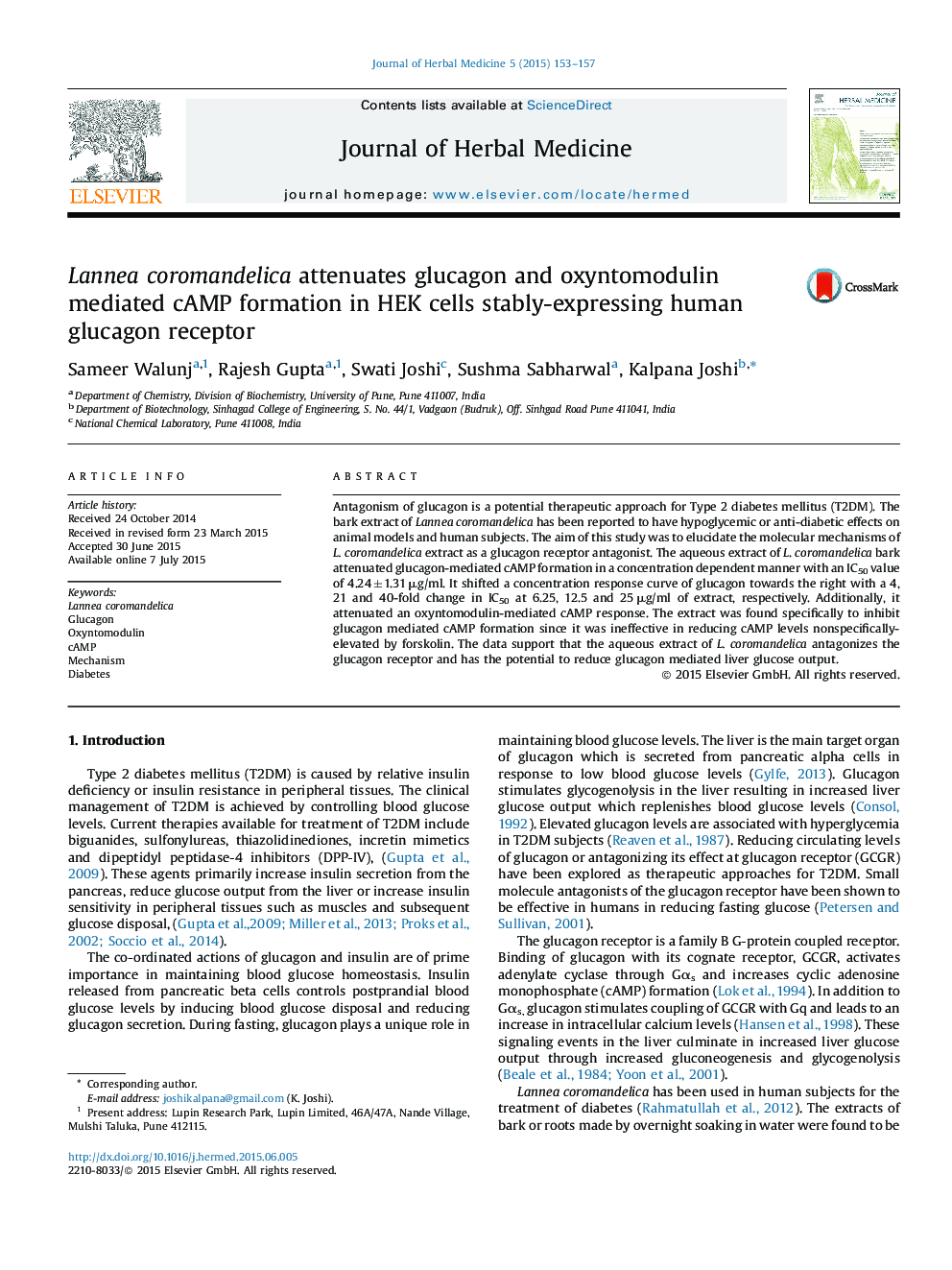| Article ID | Journal | Published Year | Pages | File Type |
|---|---|---|---|---|
| 2484026 | Journal of Herbal Medicine | 2015 | 5 Pages |
Abstract
Antagonism of glucagon is a potential therapeutic approach for Type 2 diabetes mellitus (T2DM). The bark extract of Lannea coromandelica has been reported to have hypoglycemic or anti-diabetic effects on animal models and human subjects. The aim of this study was to elucidate the molecular mechanisms of L. coromandelica extract as a glucagon receptor antagonist. The aqueous extract of L. coromandelica bark attenuated glucagon-mediated cAMP formation in a concentration dependent manner with an IC50 value of 4.24 ± 1.31 μg/ml. It shifted a concentration response curve of glucagon towards the right with a 4, 21 and 40-fold change in IC50 at 6.25, 12.5 and 25 μg/ml of extract, respectively. Additionally, it attenuated an oxyntomodulin-mediated cAMP response. The extract was found specifically to inhibit glucagon mediated cAMP formation since it was ineffective in reducing cAMP levels nonspecifically-elevated by forskolin. The data support that the aqueous extract of L. coromandelica antagonizes the glucagon receptor and has the potential to reduce glucagon mediated liver glucose output.
Related Topics
Health Sciences
Medicine and Dentistry
Complementary and Alternative Medicine
Authors
Sameer Walunj, Rajesh Gupta, Swati Joshi, Sushma Sabharwal, Kalpana Joshi,
